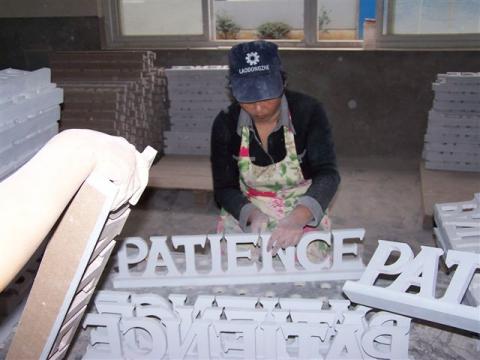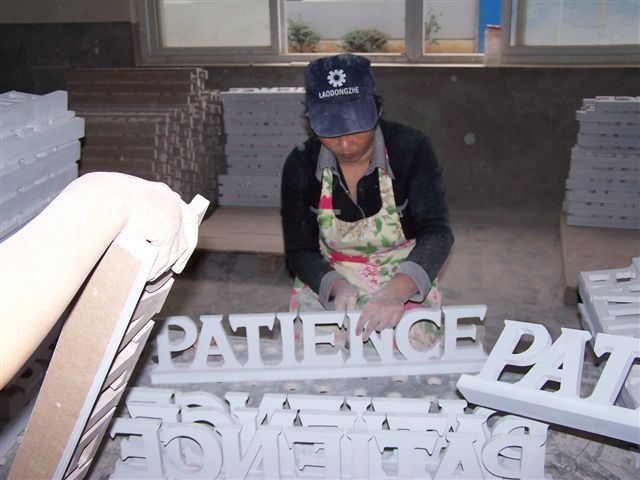
A labor organizer in China remained in a hospital in Shenzhen in serious condition after he was hacked from head to foot by two men wielding meat cleavers.
The attack on Huang Qingnan occurred on Nov. 20 minutes after he left his Migrant Worker Occupational Health and Safety Labor Center in Shenzhen. Huang and another activist had stopped to watch a group playing mah-jong when two men on a motorcycle without license plates got off the motorcycle and attacked Huang, according to an account given to the Hong Kong organization China Labour Watch by the other activist, who only gave his name as Zhu. They broke one of his legs and inflicted long stab wounds on his neck, back, waist and legs. The men then rode away on another motorcycle.
Huang was director of the labor center, a storefront office in the city's industrial Longgang district where migrant workers gathered to get free legal consultations and use the free law library. Huang and others at the center helped workers write legal petitions for compensation after they suffered fatal occupational diseases or limb or digit amputations at work. Some of the workers who Huang helped spoke to a reporter about their own fatal diseases and amputations for the "American Imports, Chinese Deaths" series published in October in The Salt Lake Tribune.
Nongovernment organizations in Hong Kong attributed the attack to the help Huang recently gave workers on the nation's new labor contract law, which takes effect Jan. 1. Many senior workers have lost their jobs, apparently because the new law requires that factories give them continued job security. Huang counseled workers on how they could fight for their jobs.
"It is clear that the events and the attack on Huang are not an individual instance but part of a larger, violent campaign," wrote Guy Ryder, the International Trade Union Confederation general secretary, who is based in Brussels, Belgium. The protest letter to the Chinese government noted that many workers from Shenzhen and a nearby city, Dongguan, have been beaten brutally or verbally threatened when they try to claim unpaid or missing wages. The letter ended with a plea that the Chinese government and police "ensure the safety of labor activists and their organizations."
Huang did not answer his cell phone last week, and no one has answered the center's telephone.
Huang's center got money from nongovernment organizations in Hong Kong. Like many such groups in China, the center was under the routine surveillance by mainland Chinese state security officials, according to workers who often visited the center.
Police have not arrested anyone in the attack. It has been relatively common during the past few years for labor activists in China to be beaten brutally. Earlier last month, Li Jinxin, another activist in Shenzhen, was thrown into a van, kidnapped and beaten with metal rods. He was hospitalized and suffered multiple fractures.
More often, labor activists have been arrested and imprisoned. China does not allow free trade unions, and state security police monitor workers' movements, meetings and phone calls to quash any burgeoning movements, according to workers interviewed for the "American Imports, Chinese Deaths" series. Just last month, Li Guohong, a worker laid off from the Zhongyuan Oil Field in Henan Province, was sentenced to 18 months in a Re-education Through Labor camp when he inquired in the Public Security Bureau about other oil workers who had been detained, according to the International Trade Union Confederation (ITCU), which also has offices in Hong Kong.
Li represented the laid-off workers in a lawsuit against the oil field.
Prior to the attack on Huang, in both October and November, someone smashed the center's windows and destroyed the office's contents, apparently with iron pipes, Zhu told China Labour Watch.
Nongovernment organizations in Hong Kong have written protest letters to China's central government and the Shenzhen government, seeking the arrest of Huang's attackers and the government's condemnation of the act. It is unclear whether Huang will regain use of all his limbs, according to the ITUC letter. Huang's muscles and nerves were cut apart, and he needs expensive surgery. The ITUC has been seeking donations to help pay for his recovery.







